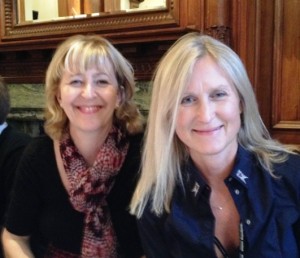The annual report of the Office of the Schools Adjudicator (OSA) has today criticised the complexity and lack of clarity of some faith-based admissions arrangements; the lack of compliance by the guidance of some religious authorities with the School Admissions Code; the fact that some faith schools have not been taking looked after and previously looked after children and children with medical or social needs until after all those of the faith of the school; and the fact that some faith schools have resisted complying with local fair access protocols.
In the report, Dr Elizabeth Passmore, Chief Schools Adjudicator, writes that ‘Some of the schools with a religious character have faith-based oversubscription criteria with faith requirements that are extensive and require a parent to be well organised and study the arrangements carefully, sometimes several years before applying for a place, to ensure that their child will have a realistic chance of gaining a place at the school. The Code at paragraph 1.37 says, “Admission authorities must ensure that parents can easily understand how any faith-based criteria will be reasonably satisfied.” Admission authorities need to look carefully at their faith-based oversubscription criteria and ensure they comply with this requirement.’
Welcoming the publication, Pavan Dhaliwal, Head of Public Affairs at the British Humanist Assocation (BHA), commented, ‘It is vital that all schools, including all religious schools, comply with the School Admissions Code. The Code is designed to ensure that schools’ admission arrangements are clear and fair and yet we have seen widespread issues with non-compliance, particularly from some of the most socio-economically selective schools. The Fair Admissions Campaign will be publishing further research on this matter in due course.’
Commenting on the annual report, Chair of the Accord Coalition for Inclusive Education, Rabbi Dr Jonathan Romain, said, ‘From a religious point of view, it is profoundly disappointing that some faith schools use admissions procedures to edit out children they consider undesirable – it begs the question of what sort of religious ethos they really have and what happened to their mission to serve the community around them?’
What the report says
60. The complexity of some schools’ admission arrangements continues to be a matter of concern… The complex arrangements compared with the clearest have some or all of: numerous oversubscription criteria and sometimes subcategories within them; different categories of places; more than one catchment area; feeder schools; tens of points available and needed to gain priority; banding and therefore tests to be taken; aptitude assessment; and several faith-based oversubscription criteria.
62. Schools designated as having a religious character may include faith-based oversubscription criteria that can be applied if the school is oversubscribed. The relevant faith body has an important role in ensuring that the guidance it gives about admissions, especially about the oversubscription criteria, takes account of the requirements set out in the Code. There are examples of clear and precise guidance that includes a limited faith requirement and a short, clear specimen supplementary information form. Other examples of guidance have not been amended following the publication of the 2012 Code, and offer supplementary forms of several pages that include matters which do not comply with the Code. There have been many objections and referrals concerning the admission arrangements of faith schools this year. Some cases have been about matters other than the faith-based oversubscription criteria, for example, priority for children attending the school’s nursery; others have been to the faith criteria and whether the practice specified complies with the Code; others have queried exactly what is required to meet the faith-based oversubscription criteria so that a child can gain priority for admission to the school. Some of the schools with a religious character have faith-based oversubscription criteria with faith requirements that are extensive and require a parent to be well organised and study the arrangements carefully, sometimes several years before applying for a place, to ensure that their child will have a realistic chance of gaining a place at the school. The Code at paragraph 1.37 says, “Admission authorities must ensure that parents can easily understand how any faith-based criteria will be reasonably satisfied.” Admission authorities need to look carefully at their faith-based oversubscription criteria and ensure they comply with this requirement.
99. As in previous years a number of local authorities express concern that some schools designated as having a religious character give priority, as permitted by the Code, to looked after, previously looked after and all other children of the faith before looked after and previously looked after children not of the faith. This may result in it being difficult, or even impossible, for a looked after or previously looked after child other than of the faith to be admitted to some popular, high achieving faith schools.
102. Some local authorities express concern at the lack of or in the level of priority given to children with disabilities in the arrangements of own admission authority schools. In a substantial number of these schools, the priority may be second only to looked after and previously looked after children, whereas many faith schools in particular give priority to all children of the faith before giving priority to other children not of the faith who have social, medical or physical needs. The situation is thus similar to that described above concerning looked after and previously looked after children. If the school is oversubscribed with children of the faith then children with social, medical or physical needs who are not of the faith of that school may not be offered places, irrespective of the suitability of the school for their particular needs.
112. [With respect to the fair access protocol] a number of local authorities report that not all schools are cooperative and that there is active resistance to the protocol from some. At one end of the spectrum, this resistance may be a relatively mild expression of disquiet when a school feels that, because it is not oversubscribed, it has been approached more frequently than other schools and so admits a high number of children who pose challenges. At the other extreme, there may be a more fundamental unwillingness, for example in a faith school, to admit children not of the faith through the protocol ahead of those of the faith who are on the waiting list.
Notes
For further information or comment please contact Paul Pettinger on 020 7324 3071 or email info@fairadmissions.org.uk.
The Fair Admissions Campaign wants all state-funded schools in England and Wales to be open equally to all children, without regard to religion or belief. The Campaign is supported by a wide coalition of individuals and national and local organisations. We hold diverse views on whether or not the state should fund faith schools. But we all believe that faith-based discrimination in access to schools that are funded by the taxpayer is wrong in principle and a cause of religious, ethnic, and socio-economic segregation, all of which are harmful to community cohesion. It is time it stopped.
Supporters of the campaign include the Accord Coalition, the British Humanist Association, Professor Ted Cantle and the iCoCo Foundation, the Association of Teachers and Lecturers, British Muslims for Secular Democracy, the Campaign for State Education, the Centre for Studies on Inclusive Education, the Christian think tank Ekklesia, the Hindu Academy, the Green Party, the Liberal Democrat Education Association, Liberal Youth, the Local Schools Network, Richmond Inclusive Schools Campaign, the Runnymede Trust, the Socialist Educational Association, and the General Assembly of Unitarian and Free Christian Churches.
 Follow
Follow

